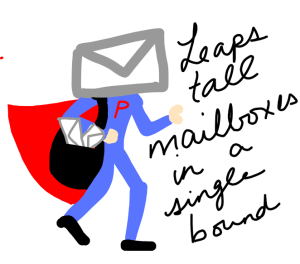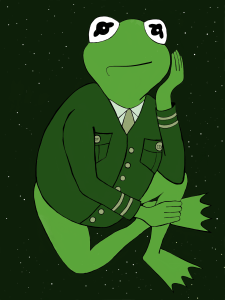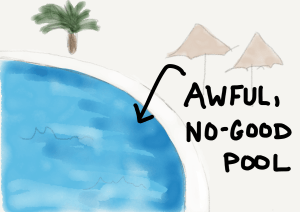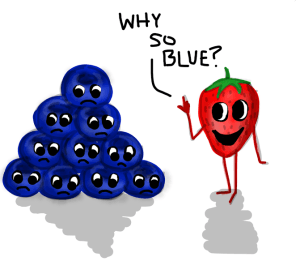Rachel Swirsky's Blog, page 25
March 25, 2016
Favorite Fiction Recommendation: “Magic in a Certain Slant of Light”
Originally published at Rachel Swirsky. You can comment here or there.
I met Deborah Coates when I was in graduate school at the University of Iowa. She and I were in a writers group together with a lot of other people. We called it Dragons of the Corn.
Deb writes beautiful magical realism, fantasy and science fiction. At one point, she was tossing around the term “rural fantasy.” Her prose is lovely, and the moods she creates are delicate and pervasive.
“Magic in a Certain Slant of Light” is one of my favorites of her short stories. Take a look at the beginning:
“If you could wish for something magical, what would you wish for?” Jeff asks Nora as he enters the kitchen.
Jeff has been gone all day, helping a friend fix the plumbing in his basement. There’s no “Hello,” or “How was your day?” Just Jeff, in the doorway, asking about magic. “It can’t be about yourself,” he continues. “I mean, like making yourself immortal. Or about world peace. It has to be—”
“Talking dogs,” Nora says.
Jeff smiles in that way he has that seems to change his face. He’s wearing faded jeans and a sweatshirt that’s been washed so many times its cuffs are all unraveled; it’s a change from pin-striped suits and crisp white shirts. “You know, Dexter made a dog talk once and it didn’t work out like he figured it would. That dog was annoying.”
“Well, I don’t know how to tell you this”—Nora chops onions under running water, then transfers them to the frying pan on the stove—”but I don’t rely on Dexter’s Laboratory for my scientific knowledge.”
“Talking dogs are not scientific.”
“Yeah, magical.” Nora turns the heat up on the pan and looks through the cupboards for the spices that she needs. She swears that they’re never where she put them, no matter how often she returns them to their proper place. “That’s what we were talking about, right? Magic? You tell me, what would you wish for?”
“Zeppelins,” he says without hesitation.
“Uhm, zeppelins actually exist.”
He stands in the kitchen doorway, slouched against the frame, and she knows that he will leave her. There is something in the way he looks, a shadow in his eye, that wasn’t there yesterday or even this morning. And it almost kills her, like being stabbed right through the heart, because he’s the only one she ever really loved.
“Zeppelins,” he says, crossing to her and putting his arms around her waist from behind as she turns back to the stove, “are a collective figment of the imagination.”
“Zeppelins are totally possible. Plus, you can ride in one.”
He kisses the back of her neck and it feels like the soft brush of sun-warmed honey. “Bring me a zeppelin,” he says. His words murmur against her skin as he talks and she can feel his smile through the small hairs along the nape of her neck. “Then I’ll believe you.”
“Bring me a talking dog.”
You can read the story at Strange Horizons, or listen at PodCastle. Even if you don’t, I hope you consider checking out the rest of Deb’s work.
By the way, since the story involves talking dogs, I may as well show off a picture of Deb’s. The photograph is from Deb’s site, taken by Rachel Ritland.
March 24, 2016
Silly interview with Darusha Wehm, pink-haired sailor.
Originally published at Rachel Swirsky. You can comment here or there.
 Darusha Wehm is a Canadian-born New Zealander who spent YEARS SAILING THE PACIFIC, which is pretty freaking cool. She’s got several novels out, a number of short stories, and she also publishes mainstream fiction (without the ‘m’ in her name).
Darusha Wehm is a Canadian-born New Zealander who spent YEARS SAILING THE PACIFIC, which is pretty freaking cool. She’s got several novels out, a number of short stories, and she also publishes mainstream fiction (without the ‘m’ in her name).Darusha was kind enough to consent to a silly interview, in which I bugged her a lot about the YEARS SAILING THE PACIFIC thing, because, as I mentioned, freaking cool.
*
1) I’m always intrigued by authors’ diverse histories, especially the ones that sound like they could be from adventure novels. You spent a few years traveling at sea. What was the most surprising thing about living on the water?
I suspect people expect an answer about wildlife or weather or self-sufficiency, and I certainly did learn plenty of interesting things about those aspects of my journey. But for me, the most surprising thing about my time sailing was the incredible sense of community among the other people I met along the way.
Other sailors and many locals are incredibly free with their time, fuel and supplies when someone needs help. It’s as if everyone is that best friend who drops everything on their only day off to come help you with a project gone wrong that you should probably never have attempted in the first place. I’ve seen people risk their lives to help a boater in trouble who they’ve never even met.
It’s like we are a small town, the exact population of which is constantly changing as boats move to different places. But in every port and every anchorage your neighbours are there, ready to have an improptu potluck party. You might never have met these particular neighbours before, but that doesn’t matter. You’re all still a part of the community.
2) You write and edit crime/mystery fiction as well as science fiction and fantasy. What appeals to you about mysteries?
I like puzzles. I also love stories that are about the intimate problems of ordinary people’s lives. Many mystery and crime stories have both of those elements, which draw me to them. Also, I like reading about how people deal with situations where bad things happen. To me, fiction can be a way to test drive another life, another set of possible choices, and seeing the extreme ends of those choices helps me calibrate my own moral compass.
3) Would you write, or have you written, a mystery novel about a character traveling at sea?
When I was travelling, people often asked if I was going to write about sailing and I always said no. I was too caught up the in the everyday life to see the possibilities for fiction. But now that I’m a land person again, I’ve started a series that revolves around a sailing crew travelling the world. It’s not a mystery, but who knows what I might write in the future.
After living on a boat for seven years, I can tell you that the most common mystery aboard is, “What’s that noise?” I’m not sure how well that would translate to written fiction.
4) I’ve only been to the North Island, but everything I’ve seen in New Zealand is gorgeous. Why did you decide to settle in Wellington? What didn’t you expect about living there?
Even though I was born and raised in Canada, Wellington is my mother’s hometown, and she always spoke of it with great fondness. It’s the seat of government here, so had a lot of job opportunities for my partner and as one of those artsy, small cities, has a great culture scene which worked well for us both. Plus, it’s absolutley stunning (when it isn’t blowing a gale).
The most surprising thing to me about Wellington is how at home I feel here. I lived on the boat for the first few years I was here, and since the boat was my home, everywhere I was when I was on it felt at least somewhat familiar. But Wellington, wonderful as it is, is a terrible place to live on a boat — it is, by many measures, the windiest city in the world. Once I moved ashore, I expected to feel more alien here, but I don’t. I am an obvious immigrant with my noticiable accent, and small talk with new people always involves the question, “Where are you from?” However, I feel completely comfortable here and have developed a strange attachment to this little city.
5) You have beautiful purple and magenta hair in your author photo. Do you still have it?
Thank you and I do! I’ve had lots of hair colours and styles over the years and I think this is my favourite.
6) Any upcoming projects or events you’d like to share?
I recently released the first in the aforementioned sailing series, called Devi Jones’ Locker. The first book is Packet Trade and it’s available in ebook and paperback from the usual online stores. Folks can find out more about it and my other books at my website http://darusha.ca
Here’s the blurb:
Tropical adventures. A rag-tag sailing crew. Running off-grid data servers? Sounds legit.
Devi Jones is a year away from graduating with a Computer Science degree and it’s internship time. But usually the ship part isn’t quite so literal. She gets hired by Really Remote Desktop, a cloud data storage company that keeps their servers in odd places, like the bilge of a hundred-foot sailboat.
How can a homebody like Devi step on to a boat with six strangers and sail away from everything she has ever known? All while trying to do her best at her first real job? Being in a tropical paradise helps — but only until things start to go wrong.
March 23, 2016
Kind Words for My Stories
Originally published at Rachel Swirsky. You can comment here or there.
Thank you to the reviewers.
Quicksip reviews writes about “Love Is Never Still:”
It’s mythic in its scope and in its characters but there’s also something deeply human about it (something that can be said about a lot of Greek mythology, I suppose), something that shows how love can lift up and love can shatter. The characters are compelling even as they are presented in breathes, brief touches that become a tapestry of longing and violence and design. The two storylines balance each other quite nicely, showing love as pursued, and women especially as objects that aren’t really considered people, are there to be fought over or prayed for.
John Wiswell writes about “Between Dragons and Their Wrath:”
No short story has haunted me more in the last month than this. The dragons are a metaphysical terror, casting a shadow of mutations across the landscape of two absolutely lovely characters. With scenes whipping by, each has a punch, even in the last line.
Reviewing The Nebula Showcase 2015, Craig Owen Jones writes that “The Nebulas are not about elitism, but about giving a platform to good sci-fi stories.”
As usual, there’s much here of worth. The winner of the Best Short Story category, Rachel Swirsky’s ‘If You Were a Dinosaur, My Love’, is a moving and elegiac tale of lost love. Elegantly expressed and formally perfect, it builds delightfully to its poignant climax.[.]
March 22, 2016
“Love Is Never Still” featured in Mary Robinette’s My Favorite Bit
Originally published at Rachel Swirsky. You can comment here or there.
My short story “Love Is Never Still” is featured today on Mary Robinette Kowal’s blog. For the My Favorite Bit series, authors write short essays about their favorite parts of their work.
I cheated a little, but only because it’s honestly true: “My favorite bit about “Love Is Never Still” is probably also my least favorite bit: the complex layers I built in over the course of four months of intense revision.”
In the essay, I discuss the techniques I used to layer complexity into the prose so that the sentences were densely packed with multiple meanings and purposes. I’m really proud of how the story came out, but it was a lot of work.
Read the essay here: http://maryrobinettekowal.com/journal...
March 21, 2016
The Mail Man
Originally published at Rachel Swirsky. You can comment here or there.
“Leaps tall mailboxes in a single bound”
March 18, 2016
Fan art: My Goodbye to Old Man’s War
Originally published at Rachel Swirsky. You can comment here or there.
My favorite part of the Old Man’s War series is listening to Scalzi tell stories and make jokes. He has a clear and polished voice and a great sense of comic timing which are disarming to “listen” to, on his blog or in his books.
Because John’s books are easy reads, and his prose relatively simple, I’ve heard people call his prose “transparent.” I think I’ve said it, too, actually. But on reflection, Scalzi’s prose is not transparent–although it’s easy to read, it’s also calibrated to catch the reader’s attention at one point, distract at another, deliver a punchline at a third. The prose isn’t just a mirror you look through to get to the story. It’s a calculated part of the reading experience.
I think of John Scalzi as belonging to a category of “storytelling” writers–writers whose authorial voices are the disarming strength of their work, like Neil Gaiman and Ursula Vernon.
A few weeks ago, I wrote Scalzi and asked if he had any directions for drawing a picture of Old Man’s War’s main character, John Perry. Scalzi said he’d imagined Perry with Caucasian features, but otherwise, I should go for it. I didn’t even manage to follow that trivial note.
In case you haven’t read the series, the main character, John Perry, is an old man who is uploaded and reborn into a fit young body in order to fight a dangerous space war. A fit, young green body.
That’s right. Kermit said it first.
It isn’t easy being green.
Thank you. I’ll be here all night.
March 17, 2016
Martin Van Dogen
Originally published at Rachel Swirsky. You can comment here or there.
Last Thanksgiving, there was a dog.
In 1837, the United States had a president named Martin van Buren.
You must admit a resemblance.
March 16, 2016
Attending ICFA March 16-20
Originally published at Rachel Swirsky. You can comment here or there.
We’re heading out to Orlando tonight for the International Conference of the Fantastic Arts. We get there laaaate, but we’ll be there through Sunday.
I’m starting out the weekend with a work-related bang, as I do a Thusday reading at 8:30am (5:30 pacific…) and then host one at 10:30. After that, I’ll have to suffer some terrible, terrible relaxing in the awful, no-good pool, and perhaps the forlorn hot tub.
I don’t have any events besides those two planned at the convention, but I’ll be around for chatting.
March 15, 2016
Long List Anthology of listed 2015 Hugo works, $1
Originally published at Rachel Swirsky. You can comment here or there.
After last year’s Hugo debacle, David Steffen decided to put together an anthology of stories that appeared on the 2015 Hugo long-list. The Long List is currently on sale for one dollar.
One of these is my novella, “Grand Jete,” which was nominated for the Nebula Award and is one of my favorite things I’ve ever written. It’s about robotics, Judaism, death, and ballet.
If you’re intrigued, here’s more information on the book:
The Hugo Award is one of the most prestigious speculative fiction literary awards. Every year, supporting members of WorldCon nominate their favorite stories first published during the previous year to determine the top five in each category for the final Hugo Award ballot. Between the announcement of the ballot and the Hugo Award ceremony at WorldCon, these works often become the center of much attention (and contention) across fandom.
But there are more stories loved by the Hugo voters, stories on the longer nomination list that WSFS publishes after the Hugo Award ceremony at WorldCon. The Long List Anthology collects 21 tales from that nomination list, totaling almost 500 pages of fiction by writers from all corners of the world.
Within these pages you will find a mix of science fiction and fantasy, the dramatic and the lighthearted, from near future android stories to steampunk heists, too-plausible dystopias to contemporary vampire stories.
The most annoying strawberry.
Originally published at Rachel Swirsky. You can comment here or there.
Strawberry: “Why so blue?”
Drawn with my finger, in a Pictionary-like program I used to have on my iPad.
I give no apologies.











